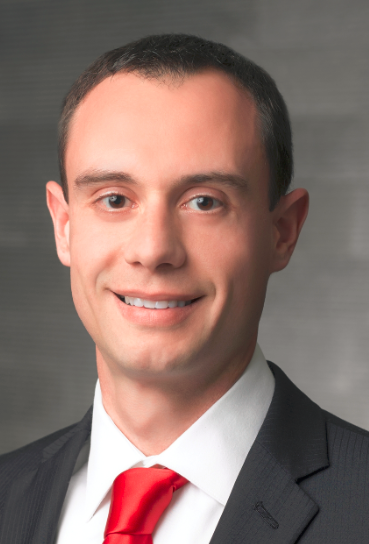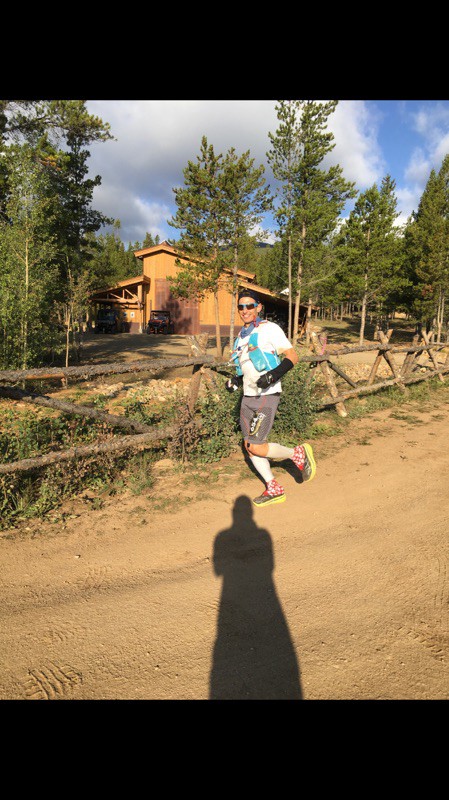When most people think about being fit and healthy, they typically focus strictly on exercise and nutrition. Few people recognize the importance of proper sleep. However, I spoke recently with Dr. Josh Riff, an ultra-fit CEO who views sleep as the most important ingredient for overall wellbeing.
Josh is currently the CEO of Onduo, a joint venture launched in fall 2016 between Sanofi and Verily Life Sciences (formerly Google Life Sciences), an Alphabet company. Before Onduo, Josh’s prior roles include serving as Senior Vice President of Prevention and Wellbeing for Optum and serving as Chief Medical Director for Target.
During our conversation, we discussed how he thinks about wellbeing, how he stays healthy when traveling and working long hours, and why he competes in ultramarathons, cross country skiing marathons, and other extreme fitness challenges. Here are some highlights from our chat:
PL: “Josh, how did your interest in fitness develop, and how has your approach evolved over the years?”
JR: “I played on the basketball team in high school, and I started racing in triathlons in college. Later on, I did some ultramarathons. More recently, I have also done cross-country skiing marathons. As I advanced in my career, I found that exercise was a great way to clear my head and think through problems. It’s also a great mechanism to stop thinking about at work at times. In addition, it’s a great competitive outlet to see how hard you can push yourself.”
PL: How do you believe that living an active, healthy lifestyle has helped you throughout your career?
JR: “I believe my fitness level provides me with the mental and physical resilience and fortitude to approach my day the right way. Training for and competing in various fitness events has also taught me how to manage my energy. When you are CEO of a company, you work long hours. You work late, and you start early. I very rarely get that 2 pm slump that many people get though. When I have a very complex problem at work, I’ll often go for a run or a swim. That usually clears my mind and helps me come up with an answer to the problem.”

PL: “What does your current workout schedule look like?”
JR: “I’m a big believer in periodization and prioritization. There are times in the year when I’ll only work out a few times a week for enjoyment. There are other times leading up to a race where I’m more focused. You have to be able to take your training up and down, based on what’s going on in your family, your career, your overall health, and so on. I usually get up at 530 am and work out at 6 am. My go-to schedule is at least 5 days a week for 45–60 minutes. Once I turned 30 years old, I started adding in resistance training too. Ideally, I’ll do that two times a week. My approach is about much more than working out though. For my own mental well-being, I prioritize in this order: sleep, family, physical activity, and then nutrition. A lot of people think they just have to exercise, but you have to take care of the other aspects too.”
PL: “You mentioned that sleep is most important when you think about wellbeing. What is your approach in this area?”
JR: “Sleep is usually the first thing that people skip, and insufficient sleep can lead to a sleep debt and a productivity debt. You can become less creative, and your thinking can slow down, even though you might feel fine at first. Getting enough sleep is the best investment you can make. As I’ve gotten older and wiser, I’m willing to skip a workout occasionally in order to get more sleep. I know it will help me at work the next day and help me be stronger when I exercise again. Ideally, you want to follow a schedule and have a bedtime ritual. I try to get at least 7 hours a night during the week. On the weekends, I try for 8.”

PL: “How do you balance time with your family with a demanding career and an intense fitness regimen?”
JR: “I’ve learned that you will train with a heavy heart if you put yourself too much at the center of your life. In the past, I had times training for an Ironman when I was gone for 6–7 hours for long bike rides on the weekends. I’ve learned that you approach your training with a light heart when you have a happy partner and a happy family. Your race time might not be as fast, but you will feel better about yourself. At a holistic level, you will perform much better overall. That was a big shift for me.”

PL: “Do you currently follow a specific diet or any key nutritional philosophies?”
JR: “I try to eat smaller meals and snacks throughout the day, and I don’t eat a lot of simple carbs. I also try to get a decent amount of protein and healthy fats. I don’t track any of this. It’s all just based on how I feel.”
PL: “How do you stay active and healthy when you are traveling?”
JR: “I bring healthy snacks like almonds with me, so I don’t have to eat junk. I also try not to drink any alcohol when I travel, especially on planes because the altitude can dehydrate you. I tend to avoid dinners and lunches when I travel. I try to do meetings before or after, so I can avoid eating heavy meals and sitting for too long.”
PL: “What would you say to a leader who believes that he/she is too busy to think about his/her wellbeing?”
JR: “When you take care of yourself, you become more efficient with your time, and you keep yourself from getting into a hole. It’s easy to get busy, feel like you are falling behind, and decide to sleep a few hours less. Then, after you sleep a few hours less, it’s easy to decide not to work out. You can create this cycle where you get further and further behind. Even if I just take 30–40 minutes in the morning to run or jump on an elliptical, I’m much sharper, and I have better focus and clarity. I find the activity meditative as well.”

PL: “What advice would you offer for organizations who want to create healthier cultures?”
JR: “The biggest piece of advice is to give people permission to discuss wellbeing. Leaders can talk to their team members about what they are trying to accomplish in this area. In prior roles, I’ve actually worked with employees to include wellbeing goals in their annual review.”
About the Author: Pete Leibman is an executive recruiter, author, and high-performance coach whose career advice has been featured on Fox News, CBS Radio, and CNNMoney.com. As a leading authority on high-performance, Pete’s currently writing his next book, titled Work Stronger: Habits for High-Performing People and Organizations. Click here for a free report from Pete on “The 5 Keys for Your Strongest, Healthiest Year Ever.”

Originally published at medium.com


